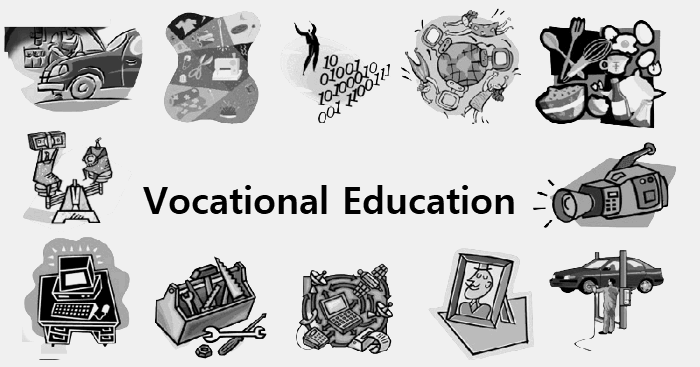
Preparing for a vocational career can be challenging, but it can be made much more manageable with the right tips and strategies. A vocational career is focused on a specific trade or skill, such as welding, plumbing, or cosmetology. These careers often require particular skills and knowledge acquired through training or education.
The first step in preparing for a vocational career is to research the field you are interested in. This will give you a better understanding of the skills and knowledge required for the job and the career opportunities available. It is also essential to find out what kind of training or education is necessary for the career you are interested in. Some vocational careers may require formal education, while others may only require on-the-job training.
Once you understand the field you are interested in, it is important to start gaining the skills and knowledge required for the job. This can be done through formal education, on-the-job training, or both. Many vocational schools and community colleges offer training programs to help you gain the necessary skills and knowledge. On-the-job training is also a great way to gain experience and learn the skills required for a vocational career.
Another essential step in preparing for a vocational career is networking with professionals. You can do this by professional organizations, attending trade shows and conferences, or simply reaching out to professionals in the field. Networking can help you learn more about the field and make connections that can help you find job opportunities.
Once you have the skills and knowledge required for the job, you must look for opportunities. You can do this through job search websites, networking, or contacting companies in the field. Having a well-written resume and cover letter highlighting your skills and experience is also essential.
In addition to the tips mentioned above, staying current on the latest developments and trends in the field is essential. This can be done through continuing education, attending professional development workshops, or reading trade publications. Staying current on the latest developments in the field will help you remain competitive and increase your chances of getting hired.
Another tip for preparing for a vocational career is to gain hands-on experience. This can be done through internships, apprenticeships, or volunteer work. Hands-on experience allows you to apply the skills and knowledge you have gained in a real-world setting, making you more attractive to potential employers. Additionally, internships and apprenticeships can provide valuable networking opportunities and lead to full-time job offers.
Having a positive attitude and being willing to learn is also essential. Vocational careers are constantly evolving, and new technologies and techniques are continually being developed. Being open to learning and adapting to new methods will make you a valuable asset to any employer. Additionally, having a positive attitude and a willingness to learn can help you overcome any obstacles that may arise during your job search or while on the job.
Finally, it's essential to maintain a good work-life balance. Vocational careers can be physically and mentally demanding, so taking care of your physical and mental health is crucial. This can be done through regular exercise, eating a healthy diet, and making time for hobbies and activities you enjoy. A good work-life balance can help you perform better on the job and make you more resilient when facing challenges.
Tips and Strategies
- Research the field you are interested in: Understand the skills and knowledge required for the job and the career opportunities available.
- Gain the necessary skills and knowledge: This can be done through formal education, on-the-job training, or a combination.
- Network with people in the field: Join professional organizations, attend trade shows and conferences, or reach out to professionals.
- Look for job opportunities: Utilize job search websites and networks and reach out to companies in the field.
- Stay current on the latest developments and trends: Continuing education, attending professional development workshops, or reading trade publications.
- Gain hands-on experience Through internships, apprenticeships, or volunteer work.
- Have a positive attitude and willingness to learn: Be open to new technologies and techniques.
- Maintain a good work-life balance: Take care of your physical and mental health, and make time for hobbies and activities you enjoy.
- Create a well-written resume and cover letter: Highlight your skills and experience to potential employers.
- Be resilient: Don't give up, keep searching, improve yourself, and be open to new opportunities.
In summary, preparing for a vocational career requires research, gaining skills and knowledge, networking, job searching, staying current on the latest developments in the field, gaining hands-on experience, having a positive attitude, and maintaining a good work-life balance. Following these tips and strategies can increase your chances of success and find a fulfilling and rewarding career in your chosen field. Remember, vocational careers are in high demand, so don't underestimate the value of the skills you will acquire and how they can open many doors for you in the future.
Also Read:
- Apprenticeships: How to Get Started
- Careers in Trades: Opportunities and Salaries
- Choosing a Vocational Career: What to Consider
- Importance of Vocational Education in Today's Job Market
- Online Vocational Programs: Advantages and Disadvantages
- Preparing for a Vocational Career: Tips and Strategies
- Role of Government in supporting Vocational Education
- The Advantages of Vocational Education for High School Students
- The Future of Vocational Education: Emerging Trends and Technologies
- The Role of Vocational Education in Economic Development
- The Vocational Education and Training System
- Types of Vocational Programs: Which One is Right for You?
- Vocational Education and Entrepreneurship
- Vocational Education and Industry 4.0
- Vocational Education and Job Placement
- Vocational Education and Lifelong Learning
- Vocational Education and Skills Shortage: How to bridge the gap
- Vocational Education and the Future of Work
- Vocational Education and the Gig Economy
- Vocational Training vs. College: What's the Difference?


